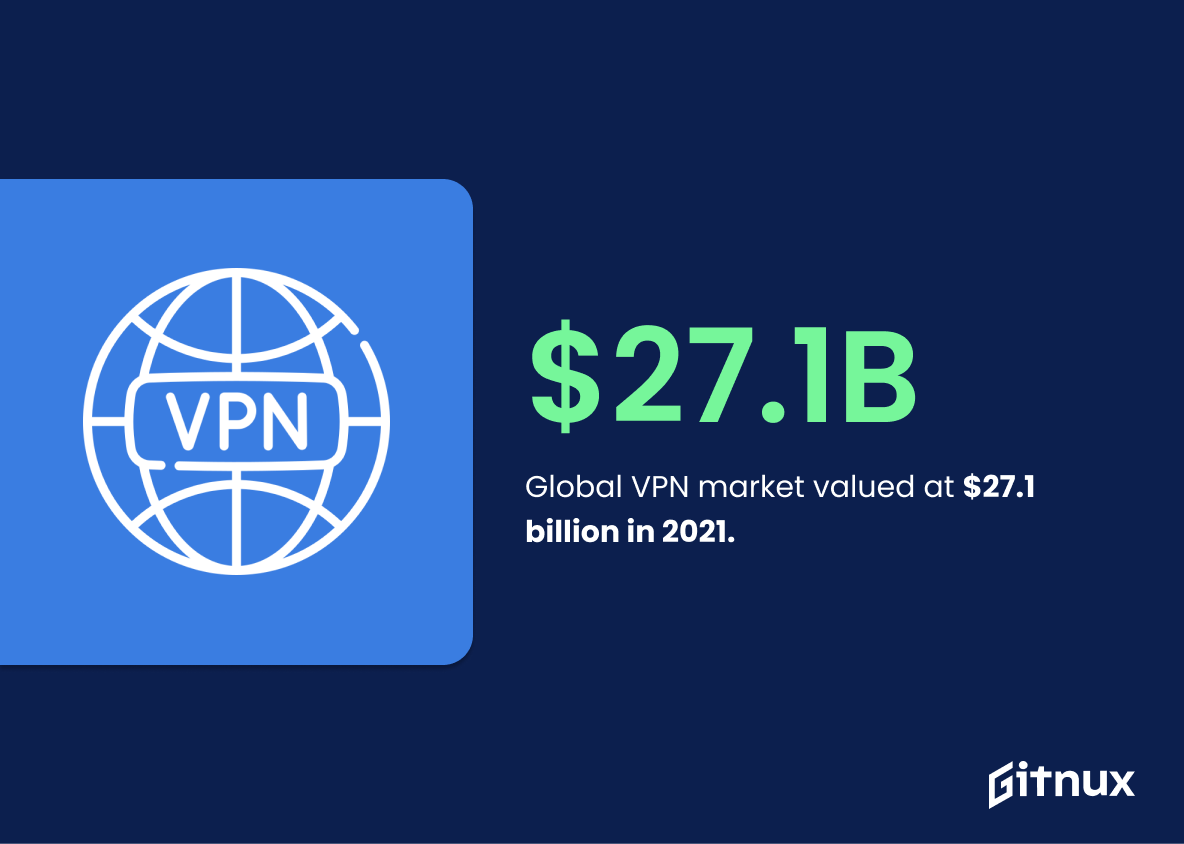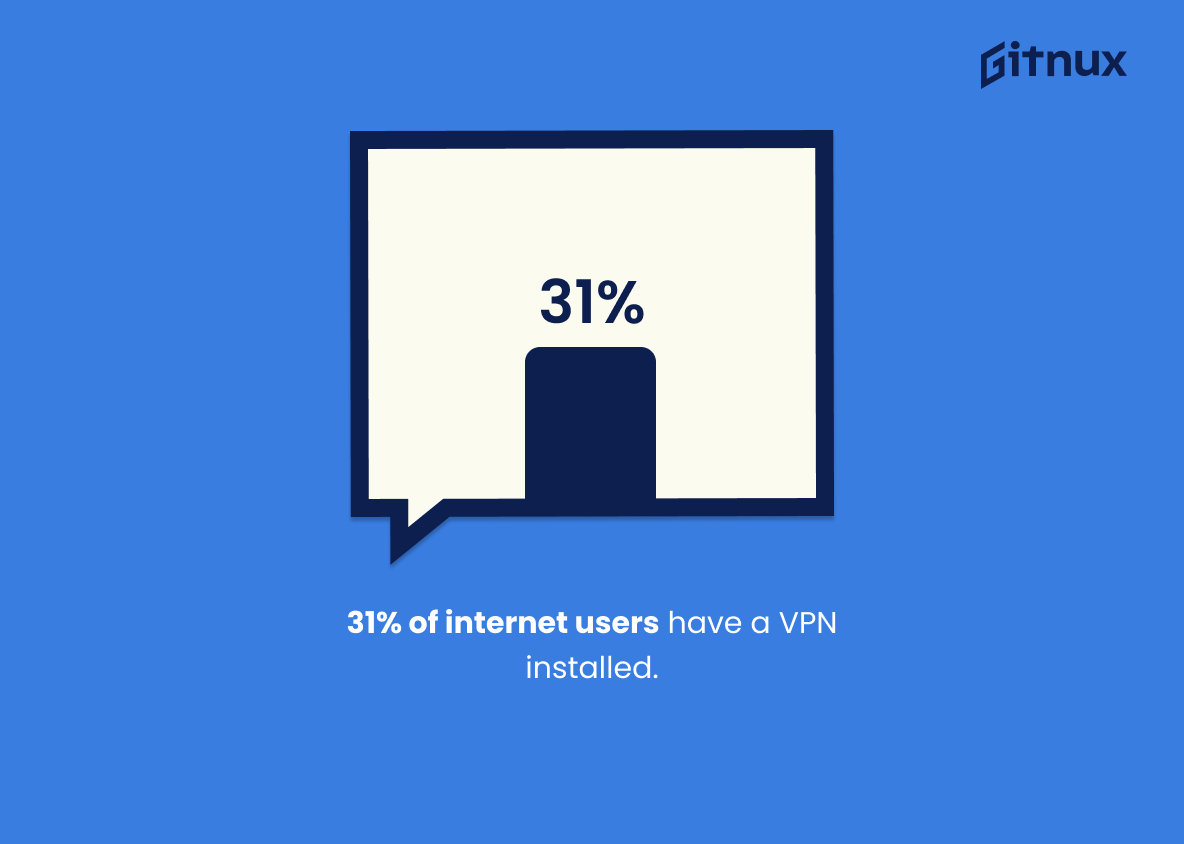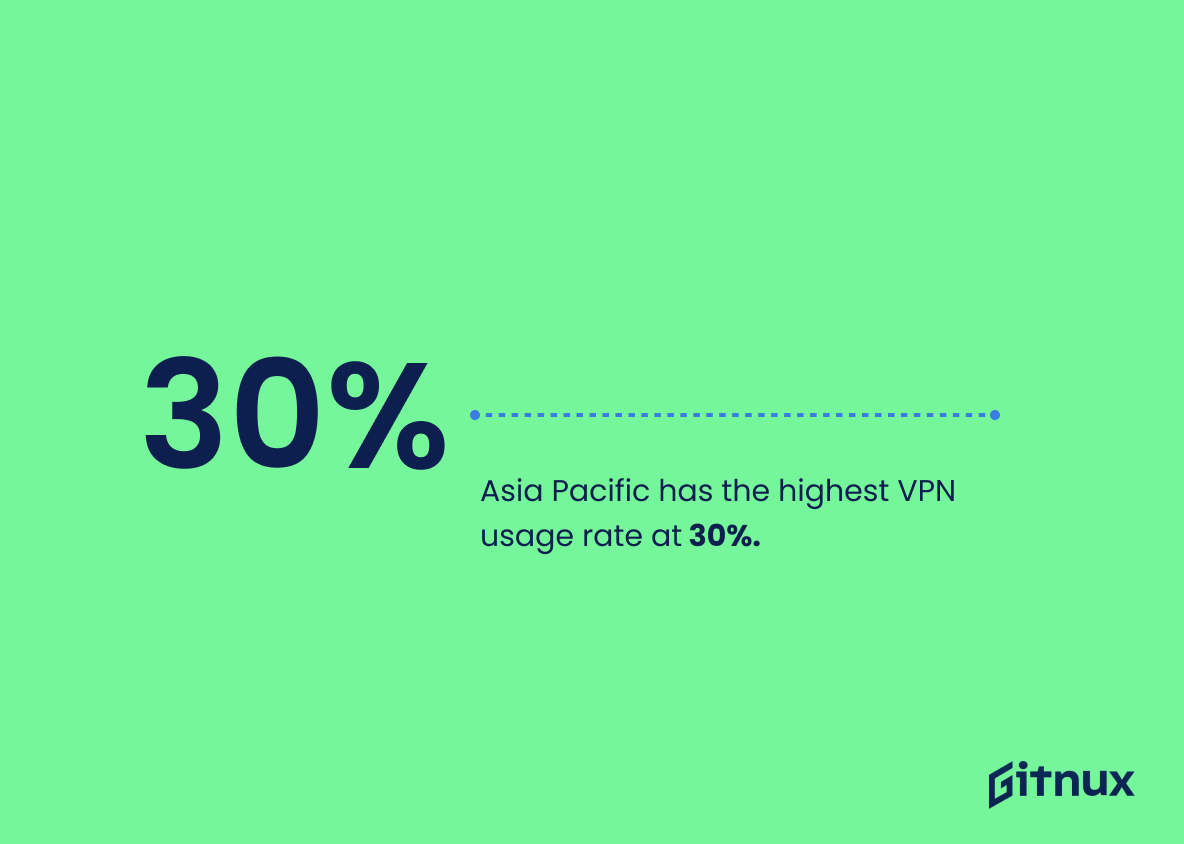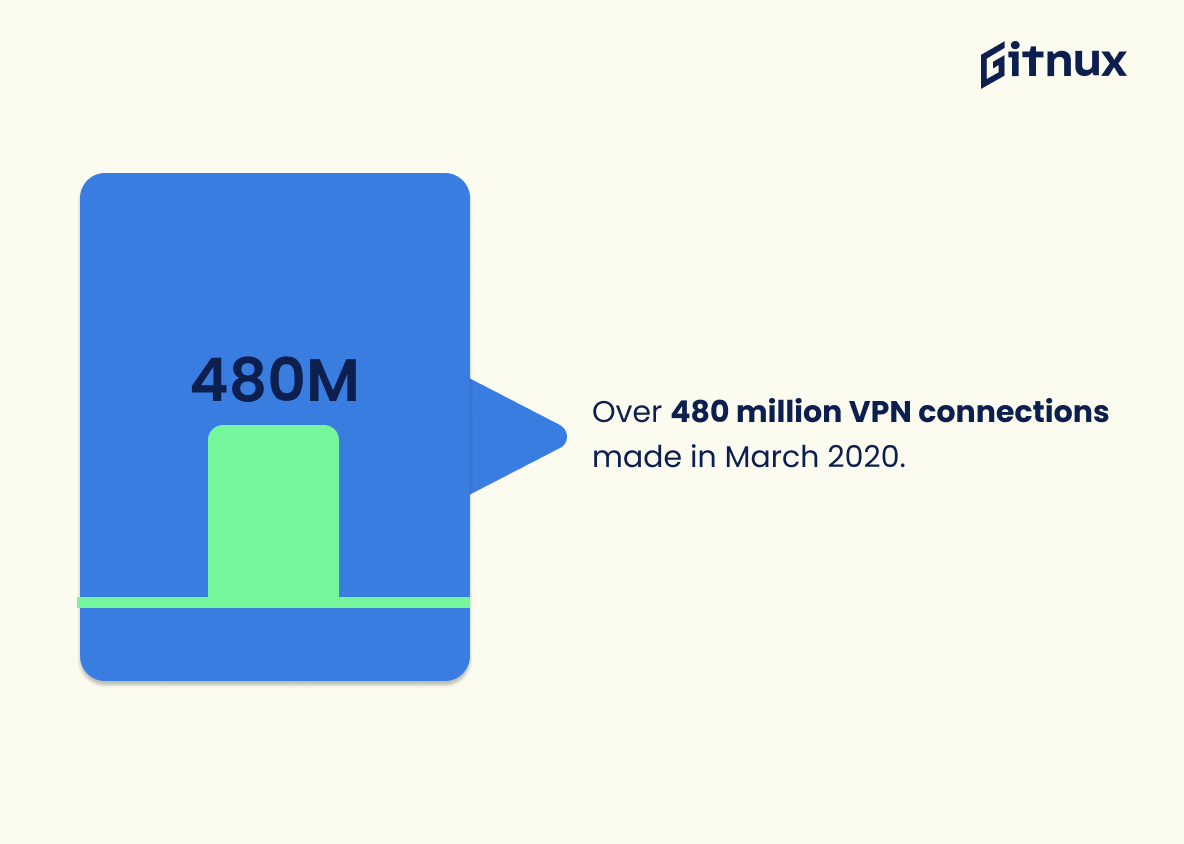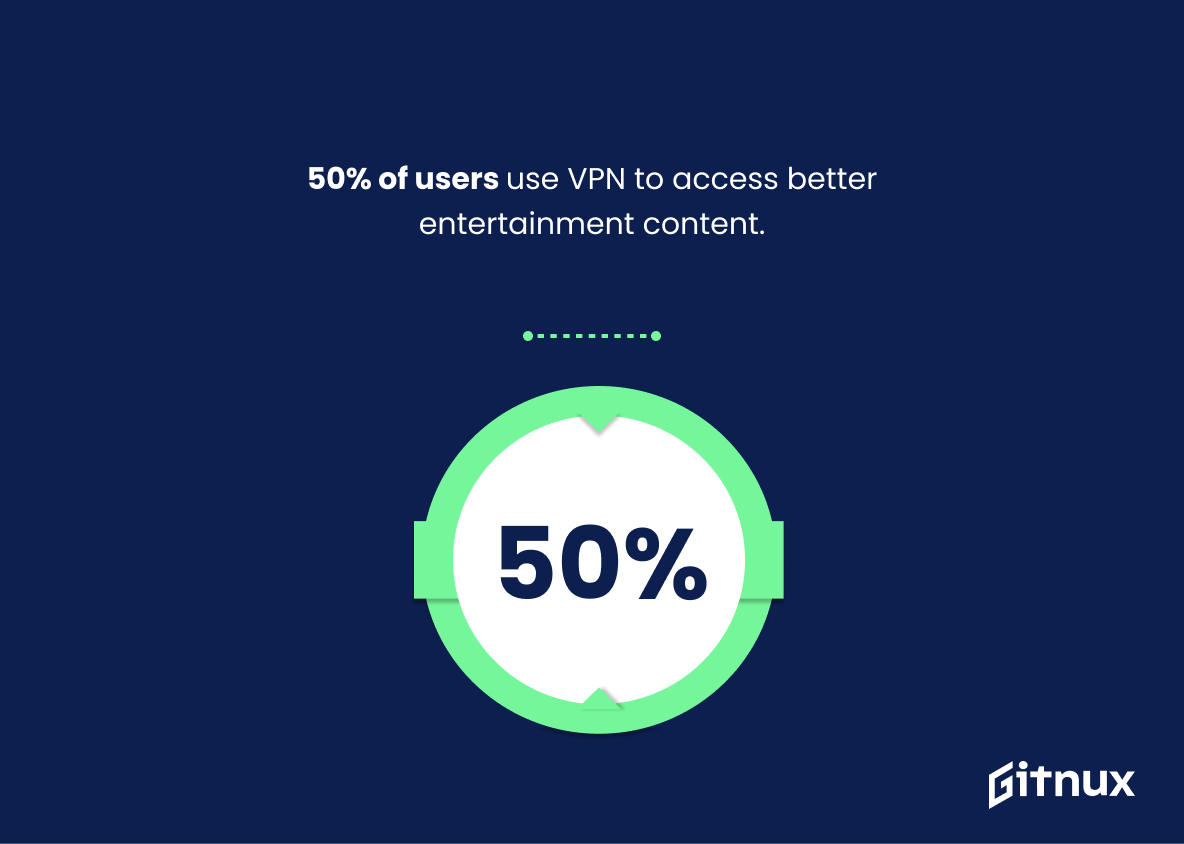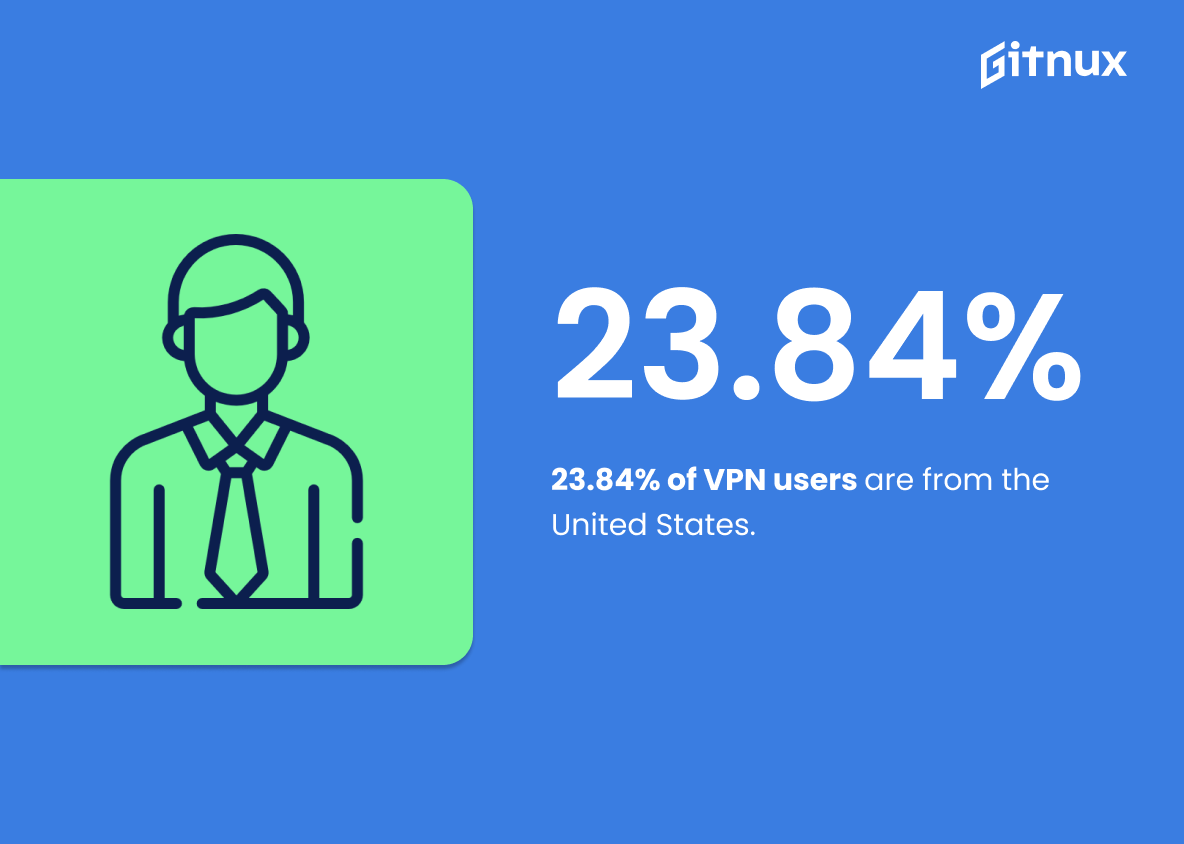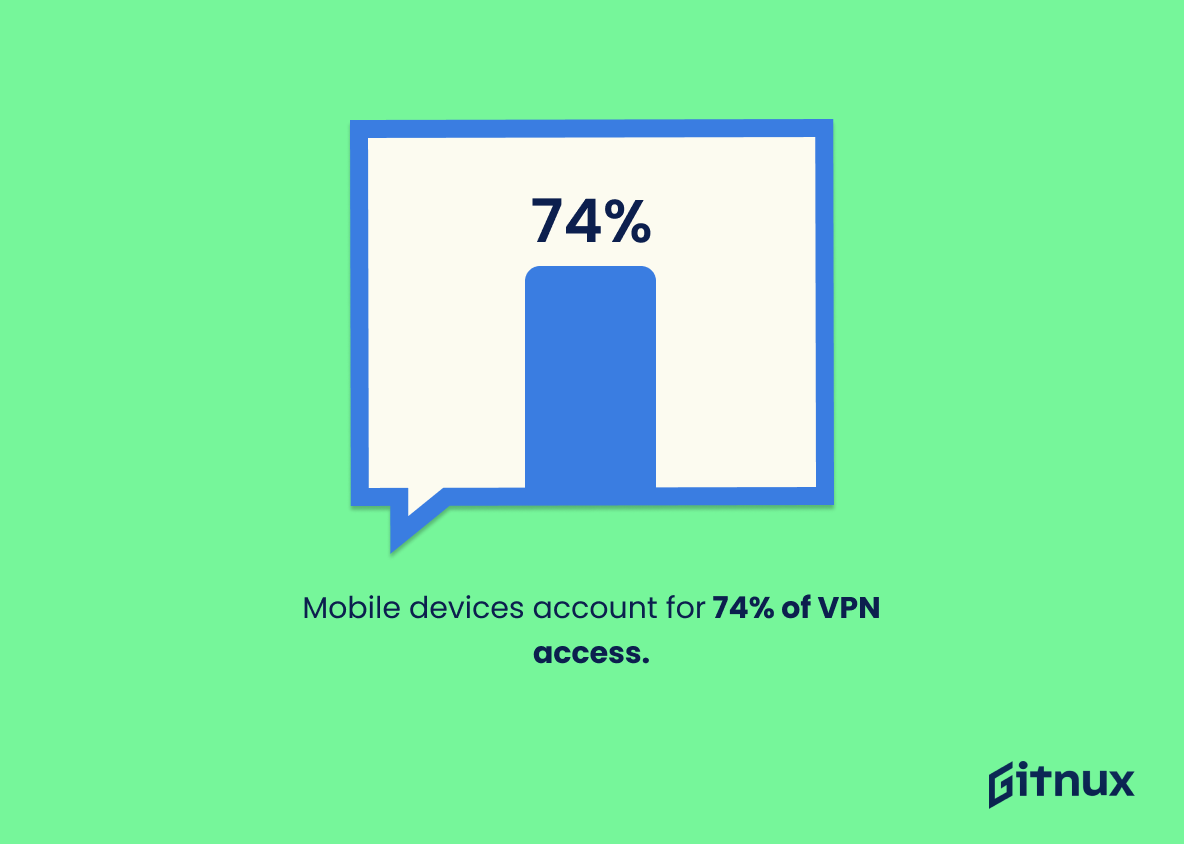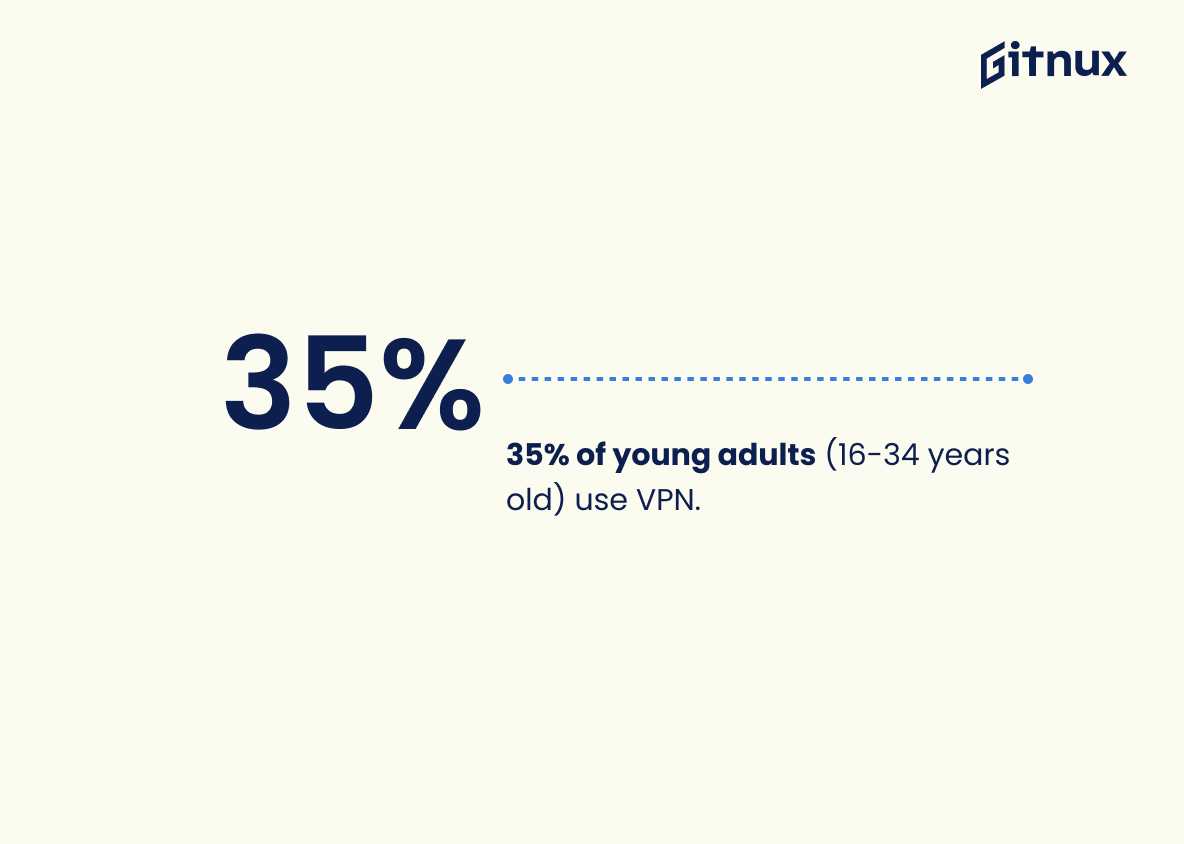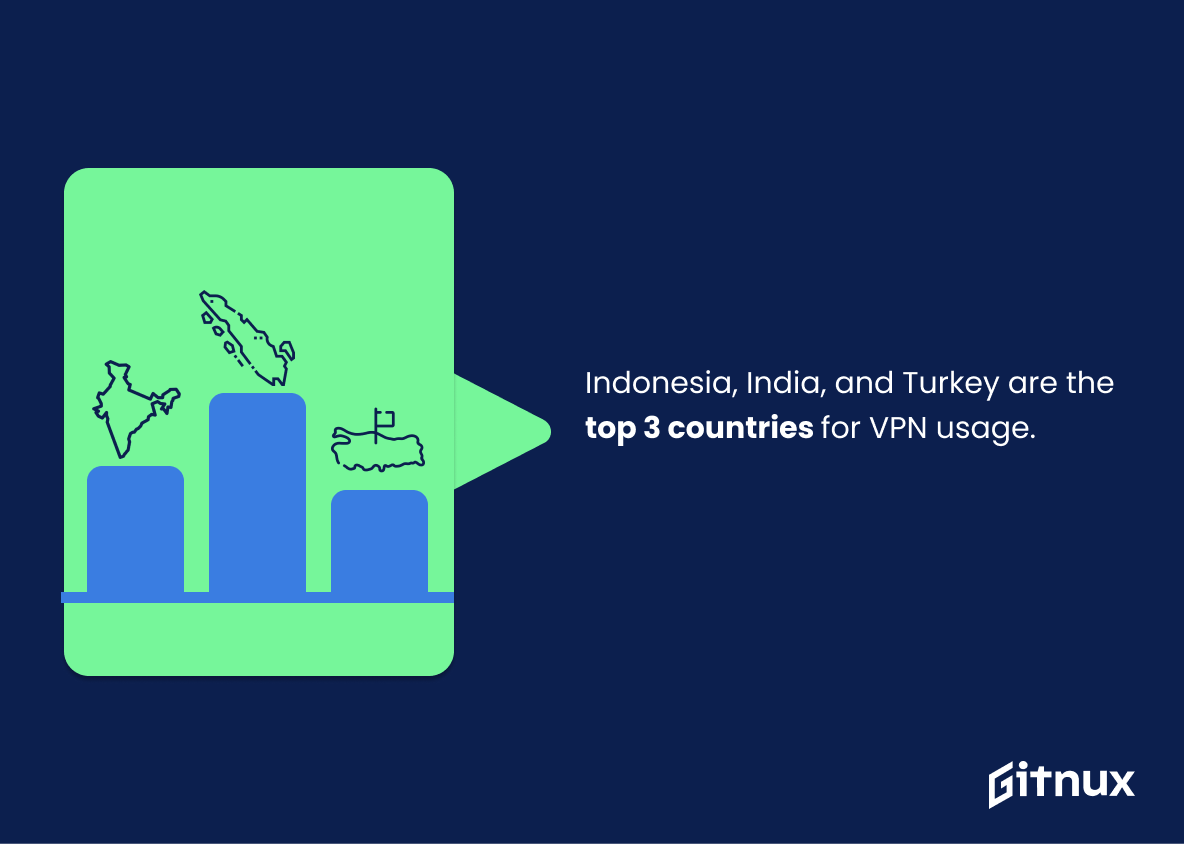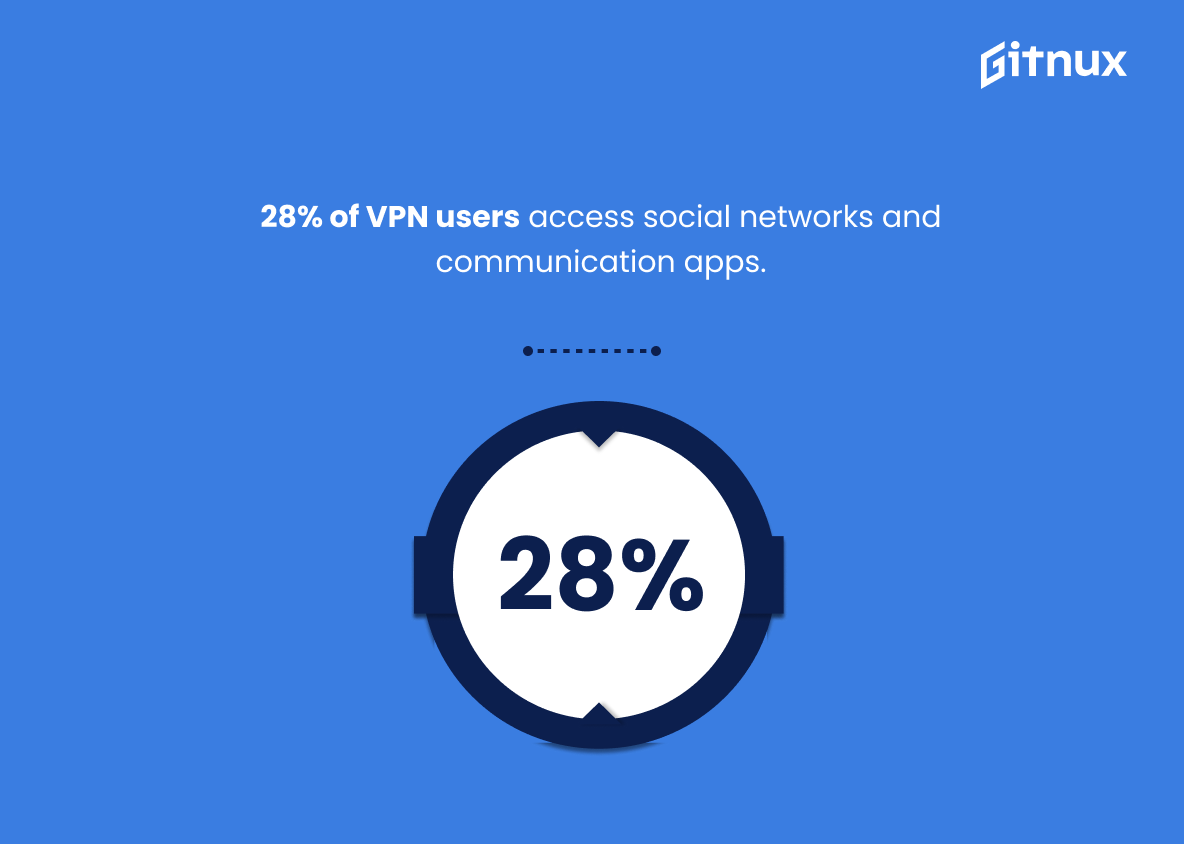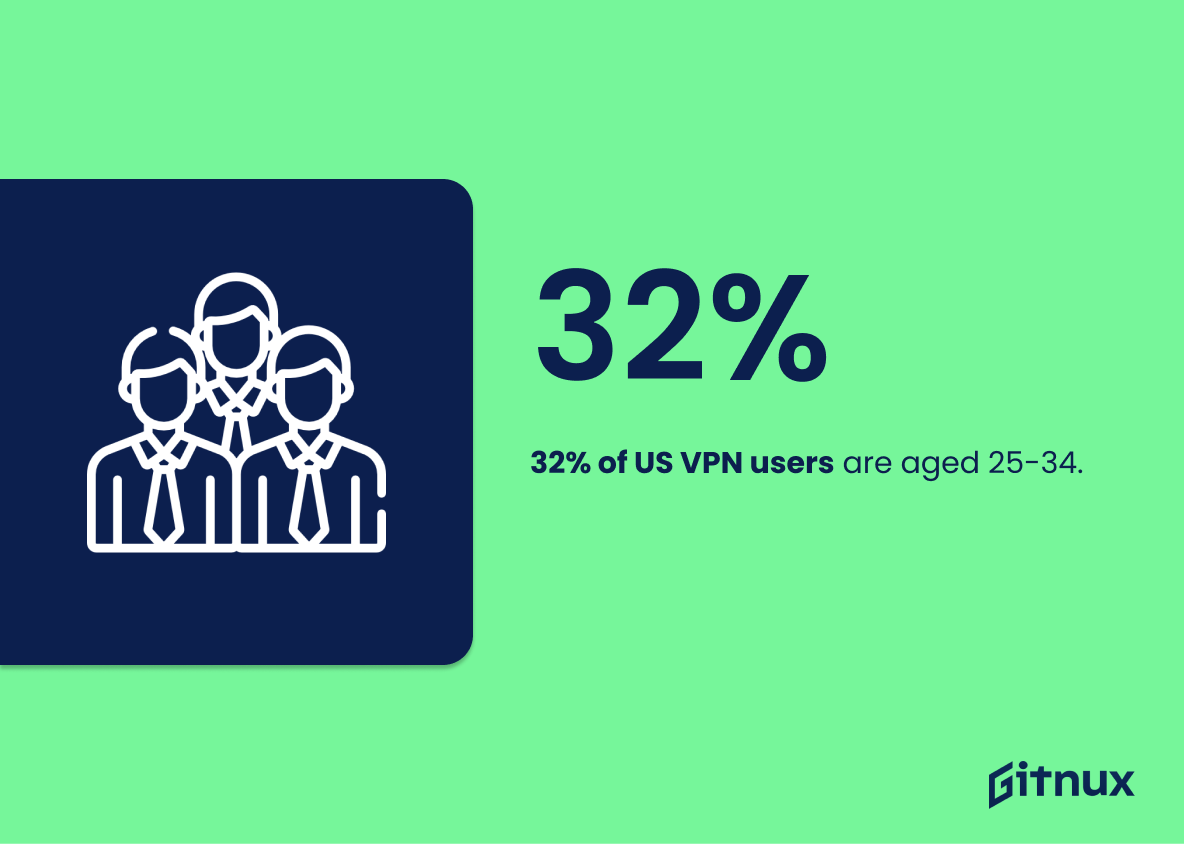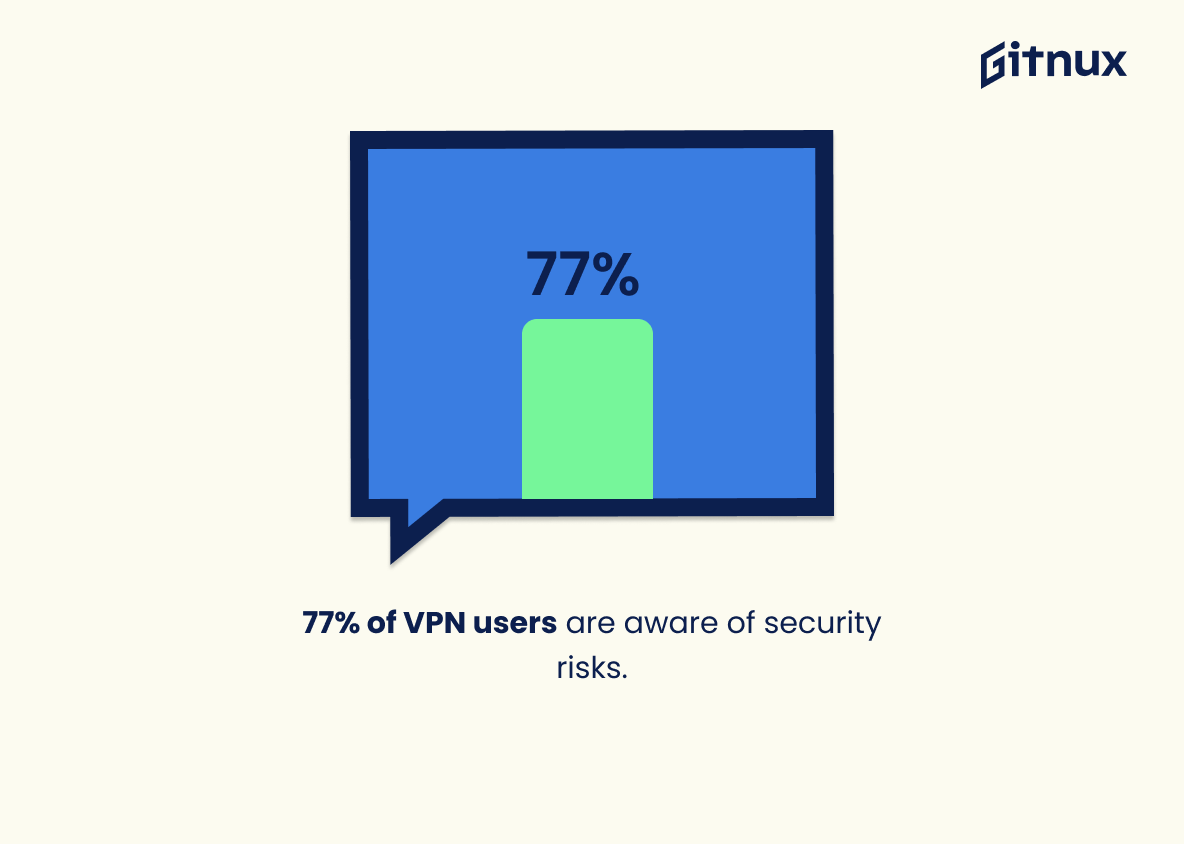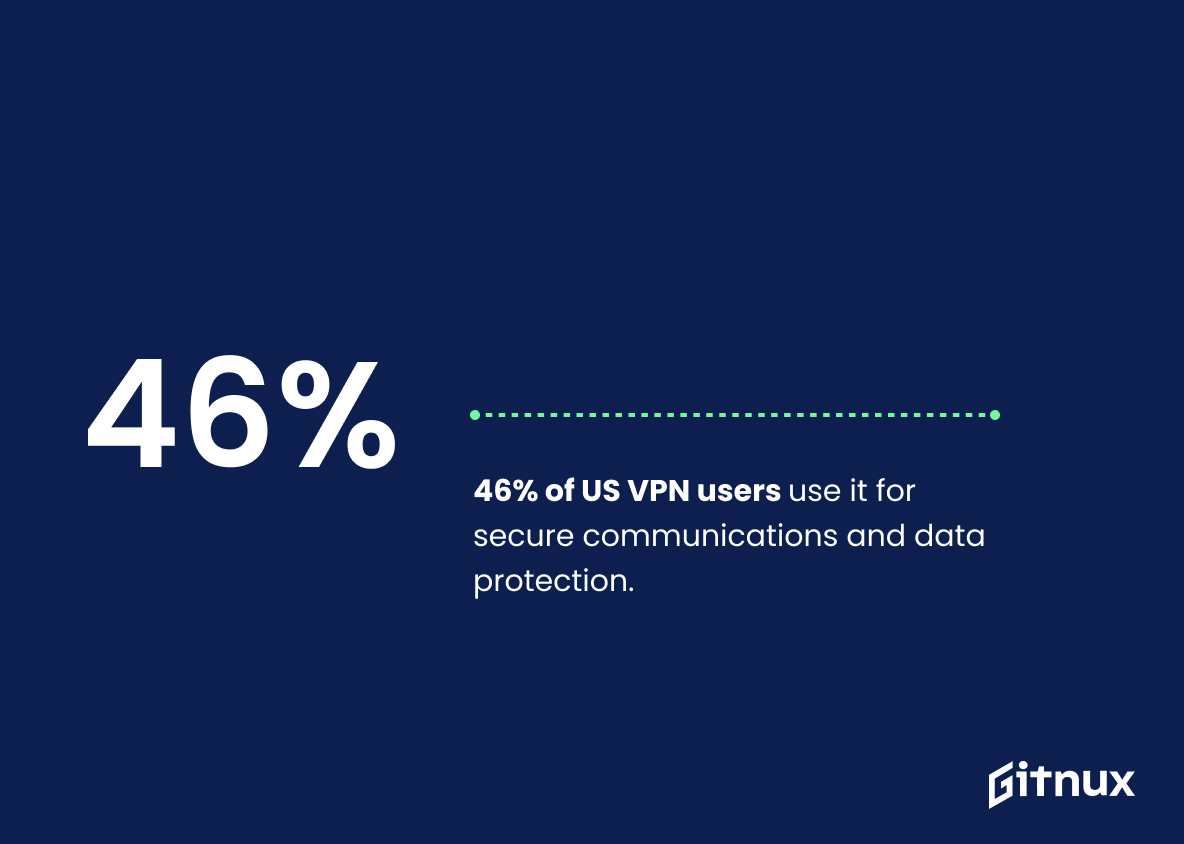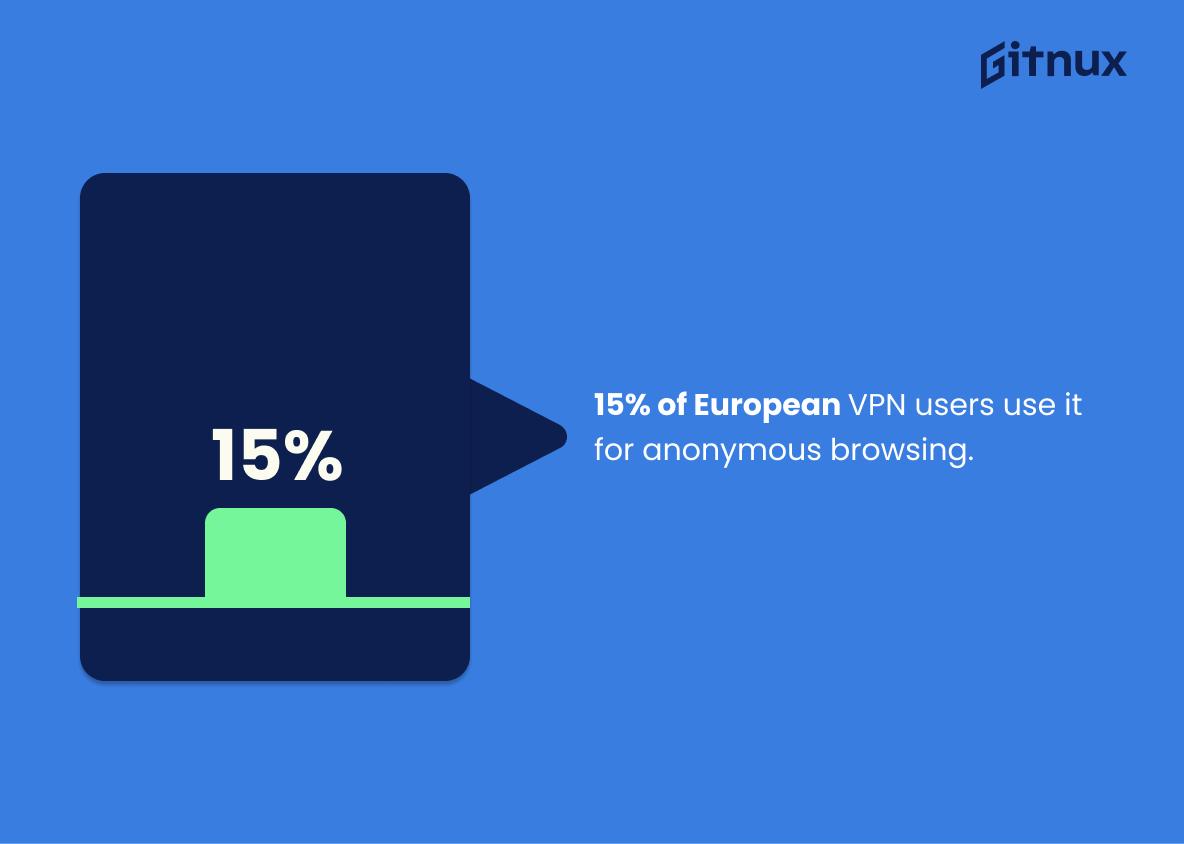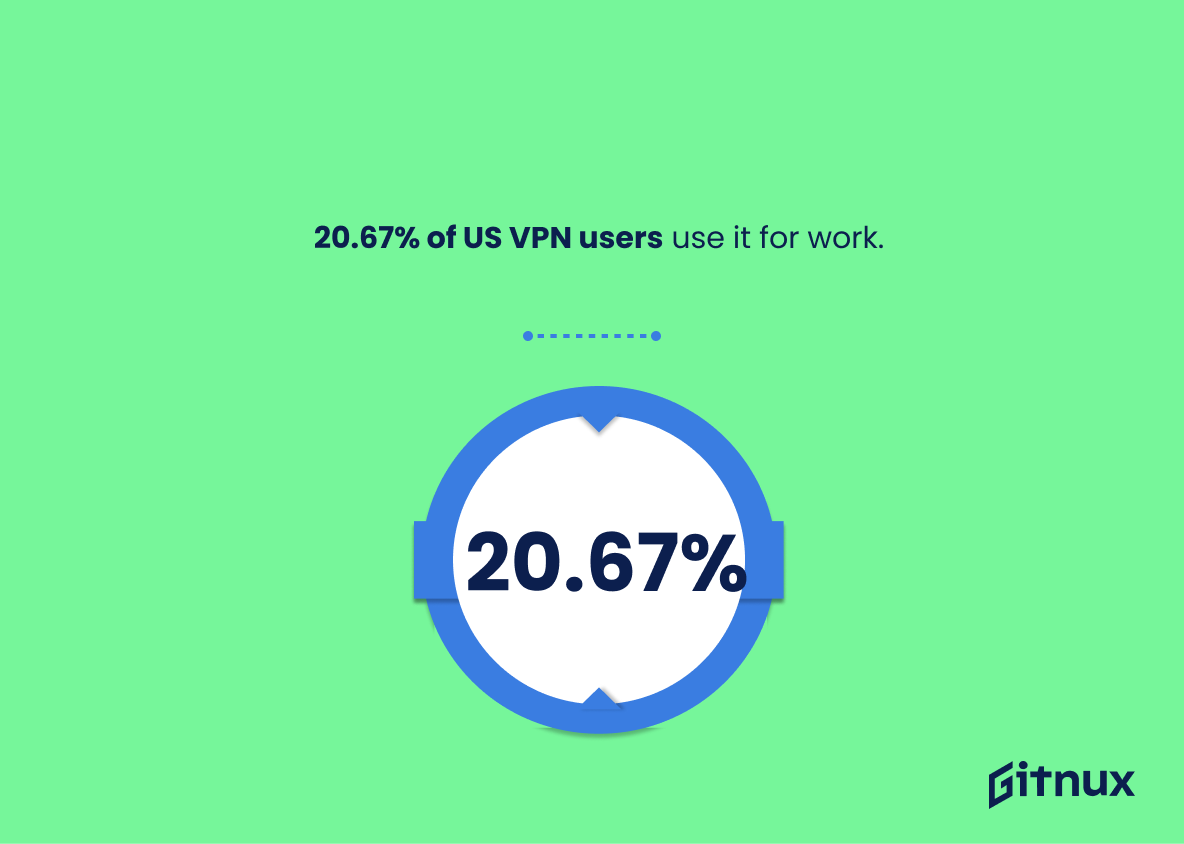As cyber threats have increased, the use of Virtual Private Networks (VPNs) has grown in popularity. VPNs are a secure method of navigating the internet, and they can be used to protect personal information and access restricted content. Given the increasing demand for VPNs, it is essential to comprehend the current VPN industry by looking at the provided statistics below.
In this article, we will investigate the latest statistics and trends in VPN usage, including the most popular countries, services, and VPN applications with their pros and cons. In addition, we will consider how VPNs may be utilized in the years to come.
VPN: The Most Important Statistics
51.4% of VPN users utilize free VPN services.
The global VPN market was worth $44.6 billion in 2022 and is expected to reach $75.59 billion by 2027.
VPN industry statistics
The global VPN market was worth $44.6 billion in 2022 and is expected to reach $75.59 billion by 2027.
India’s VPN market surpassed $11.6 billion in 2022. India is currently the largest VPN market in the world, surpassing China ($9.9 billion) and Indonesia ($4.14 billion).
72% of American respondents to this study in 2020 indicated that they were familiar with VPNs. By 2022, 88% of respondents were familiar with VPNs.
The UAE had the highest VPN adoption rate in 2022, at approximately 43.18%, followed by Qatar and Singapore (39.2% and 37.1%, respectively).
In 2022, Nigeria had the lowest VPN adoption rate, at approximately 3.47%. Thailand and Japan followed (1.91% and 1.48%, respectively).
In 2022, Cisco AnyConnect led the global VPN software market with a market share of 28.6%, closely followed by Cisco VPN and Juniper VPN with market shares of 25.51% and 10.62%, respectively.
In 2022, NordVPN received a rating of 4.8 out of 5, making it the best VPN service available. Due to its speed, effectiveness, affordability, and simplicity, NordVPN ranked first. Surfshark holds the second position with a score of 4.6/5.
VPN usage statistics
More than 277 million VPN applications were downloaded by individuals from 85 countries in 2020. In 2021, there were 785 million VPN downloads, while in 2022 there were 353 million.
41% of respondents from the United States and the United Kingdom use a VPN at least once per week, while 36% utilize a VPN daily. This suggests that VPNs are not necessary for a particular purpose, but rather are seamlessly integrated into everyday internet browsing.
VPN usage in the United States reached approximately 40% in 2022, with the majority of respondents using VPNs for personal use only. 61% of American adults did not use a VPN or were unaware of their existence.
71% of American respondents reported using VPNs both at work and at home in 2022. Meanwhile, 63% of respondents only use VPN at work.
20% of respondents reported increasing VPN capacity by 76% in 2021. In contrast, 26% of respondents report that they do not need to increase their VPN capacity due to COVID-19.
In many countries, VPN usage remained restricted or illegal in 2022. In Russia, Uganda, and the United Arab Emirates, the use of virtual private networks was heavily restricted.
Over 20% of respondents in Russia regularly or occasionally utilized a VPN.
VPN users statistics
The majority of VPN users, 51.4%, only utilize free VPN services. In contrast, only 34.6% of users employ paid VPNs, while 14% use both free and paid VPNs.
According to Surfshark, 54% of VPN users are male, while the remaining 46% are female.
The majority of VPN users are reported to be between the ages of 25 and 34, with approximately 1 in 5 survey respondents in this age range claiming to use a VPN.
Only 16.5% of Gen Z between the ages of 16 and 24 claimed VPN use, which is less than the percentage of Millennials who used VPNs.
In 2022, 43% of respondents worldwide used VPNs for security purposes, followed by streaming and privacy (26% and 12%, respectively).
17% of American respondents report using VPN for personal use only in 2022, compared to 13% for business use only and 9% for both business and personal use.
55% of respondents in 2022 in the United States cited general security as the most important reason for using a VPN. In second and third place, with respective percentages of 50% and 34%, are the general privacy and job requirements.
In 2022, 24% of American respondents reported using VPN for public Wi-Fi security, while 17% reported using VPN to cover up their activity from search engines.
In the United States in 2022, 59% of respondents claim that the reason for not owning a VPN is the lack of personal need. Cost, cited by 22% of respondents, remained the primary obstacle to the widespread adoption of personal VPNs.
In 2022, 21% of American respondents to a survey say they do not own VPN because it is too difficult to set up, while 20% are unsure of the benefits VPN provides.
Check out our latest Data Privacy Statistics
VPN performance statistics
In 2021, the VPN service provider ExpressVPN had the highest server uptime, at 99.97%.
PureVPN was the VPN provider with the lowest server uptime in 2021, at 97.21%.
In 2022, IPVanish and NordVPN were the VPNs with the fastest average download speeds, both exceeding 350 megabytes per second.
Hotspot Shield was the fastest in terms of upload speed, with an average speed of 36.36 megabytes per second.
Private Internet Access was the VPN with the lowest download latency in 2022, at only 31 milliseconds, compared to Surfshark’s 114 milliseconds.
Surfshark had the longest upload latency, which was measured at 440 milliseconds.
VPN risks and limitations statistics
84% of the free VPN applications in the Google Play Store leak data.
42% of VPN users have experienced VPN blocking, according to Top10VPN.
10 of the most popular free VPN apps in the Google Play store contain critical flaws, affecting nearly 120 million users.
84% of free VPN apps on the Google Play Store leak data.
In 2022, 39% of respondents using free VPNs in the United States experienced a slow internet connection, while 13% had issues with advertising (too many ads or ad glitches).
12% of respondents reported that free VPN services had streaming/torrenting issues, while 10% encountered software problems.
Supplementary Statistics
In 2021, the global VPN market is valued at $27.1 billion.
This highlights the fact that VPNs are becoming increasingly popular and necessary for businesses and individuals alike, as they provide a secure and reliable way to access the internet. This statistic is a clear indication that the VPN market is booming and is likely to continue to grow in the coming years.
31% of internet users have a VPN installed on their devices.
It shows that a large portion of the population is taking steps to protect their online privacy and security, indicating that VPNs are becoming increasingly popular.
The Asia Pacific region has the highest VPN usage rate at 30%.
The region is leading the way in terms of VPN usage, which could be indicative of a greater need for online security and privacy in the region. This could be due to a variety of factors, such as the prevalence of cybercrime or the need for greater access to restricted content.
More than 480 million VPN connections were made globally in March 2020.
With the world facing unprecedented levels of disruption, VPNs have become a vital tool for people to stay connected and secure. This statistic highlights the need for VPNs to protect users from cyber threats and to ensure their online privacy. It also shows the growing demand for VPNs as more people become aware of their benefits.
The most common reason for using a VPN is to access better entertainment content, cited by 50% of users.
A large portion of VPN users are utilizing the technology to access content that may not be available in their region. This is an important factor to consider when discussing the benefits of VPNs, as it demonstrates the value they can bring to users.
23.84% of VPN users are from the United States.
This is important to note as it shows that the US is a major market for VPN services, and that there is a large demand for these services in the US. Additionally, this statistic can be used to inform marketing and advertising strategies for VPN services, as it provides insight into the demographics of VPN users.
Mobile devices account for 74% of the devices used to access a VPN.
It highlights the need for businesses to ensure their VPNs are optimized for mobile devices, as the majority of users are accessing them from their phones or tablets. Furthermore, it emphasizes the need for businesses to ensure their VPNs are secure and reliable, as mobile devices are increasingly becoming the primary way users access the internet.
Young adults between 16-34 years old are the largest demographic for VPN usage, with 35% adoption.
The younger generation is increasingly aware of the importance of online security and privacy, and is taking steps to protect themselves. This is an important trend to note, as it suggests that the younger generation is more tech-savvy and security-conscious than previous generations.
The top 3 countries where VPNs are most popular are Indonesia, India, and Turkey.
This highlights the need for VPNs in these countries, as well as the potential for growth in the VPN market in these countries. Additionally, it can be used to inform decisions about where to focus marketing efforts and resources.
28% of VPN users access social networks and communication apps.
This shows the importance of VPNs for providing secure access to these services, and the need for users to be aware of the potential risks associated with using them.
32% of US VPN users are aged between 25-34.
It suggests that the use of VPNs is becoming increasingly popular among this demographic, likely due to the need for increased online security and privacy.
77% of VPN users are aware of the potential security risks involved in using a VPN.
Users are taking the necessary steps to protect their data and privacy, which is essential in today’s digital world. This statistic is important to consider when discussing VPN usage, as it demonstrates that users are taking the necessary precautions to ensure their safety.
The top reason for using VPN in the United States is to secure communications and protect personal data at 46%.
A large portion of the population is aware of the need to protect their data and communications, and are taking the necessary steps to do so. This is an important point to make in a blog post about VPN statistics, as it highlights the importance of using a VPN to protect personal data.
15% of European VPN users use it for anonymous browsing.
A lot of users prioritize their privacy and security when using a VPN, which is a key factor to consider when choosing a VPN service.
In 2021, it’s estimated that 20.67% of VPN users in the United States are using it for work.
VPN users in the United States are relying on the technology to stay connected and secure while working remotely. This highlights the need for businesses to invest in VPNs to ensure their employees are able to work safely and securely.
VPN usage is predicted to grow at a compound annual growth rate (CAGR) of 15.05% between 2021 and 2026.
This displays the growing need for secure and private online access, as well as the potential for businesses to capitalize on this trend. With a CAGR of 15.05%, this statistic is a clear sign that VPN usage is on the rise and is likely to remain so for the foreseeable future.
Conclusion
The VPN industry is growing rapidly, and the statistics show that more and more people are taking advantage of the privacy and security benefits that VPNs provide. As the demand for VPNs increases, it is important for users to be aware of the different features and benefits offered by different providers. By researching the different options available and selecting the right VPN for their needs, users can ensure that their online activities remain safe and secure.
References
atlasvpn: “Global VPN Adoption Index”, cited in February 2023 (Source)
CybersecurityInsiders: “VPN RISK REPORT”, cited in February 2023 (Source)
Forbes: “10 Best VPN Services Of 2023”, cited in February 2023 (Source)
PCMatic: “2022 Password Hygiene & Habits Report”, cited in February 2023 (Source)
PRNewswire: “New Analysis from Global Industry Analysts Reveals Steady Growth for Virtual Private Network (VPN), with the Market to Reach $77.1 Billion Worldwide by 2026”, cited in February 2023 (Source)
Statista: “Do you use a virtual private network (VPN) and if so, how often?”, cited in February 2023 (Source)
Statista: “Leading technologies’ share in the virtual private networks (VPN) software market worldwide in 2022”, cited in February 2023 (Source)
Statista: “Main reasons for not having a Virtual Private Network (VPN) for personal use in the United States in 2022”, cited in February 2023 (Source)
Statista: “Most important reasons for using a Virtual Private Network (VPN) in the United States from 2021 to 2022”, cited in February 2023 (Source)
Statista: “Technical issues encountered on free Virtual Private Networks (VPN) in the United States in 2022”, cited in February 2023 (Source)
Statista: “Virtual Private Network (VPN) awareness in the United States from 2020 to 2022”, cited in February 2023 (Source)
Statista: “Virtual Private Network (VPN) usage in the United States in 2022”, cited in February 2023 (Source)
Surfshark: “VPN statistics: users, markets, & legality”, cited in February 2023 (Source)
Tech.co: “Are VPNs Legal? Your Rights to Using VPNs Explained”, cited in February 2023 (Source)
Top10VPN: “Global VPN Usage Report 2020”, cited in February 2023 (Source)
VPNPro: “Major vulnerabilities found in top free VPN apps on Google Play store”, cited in February 2023 (Source)
